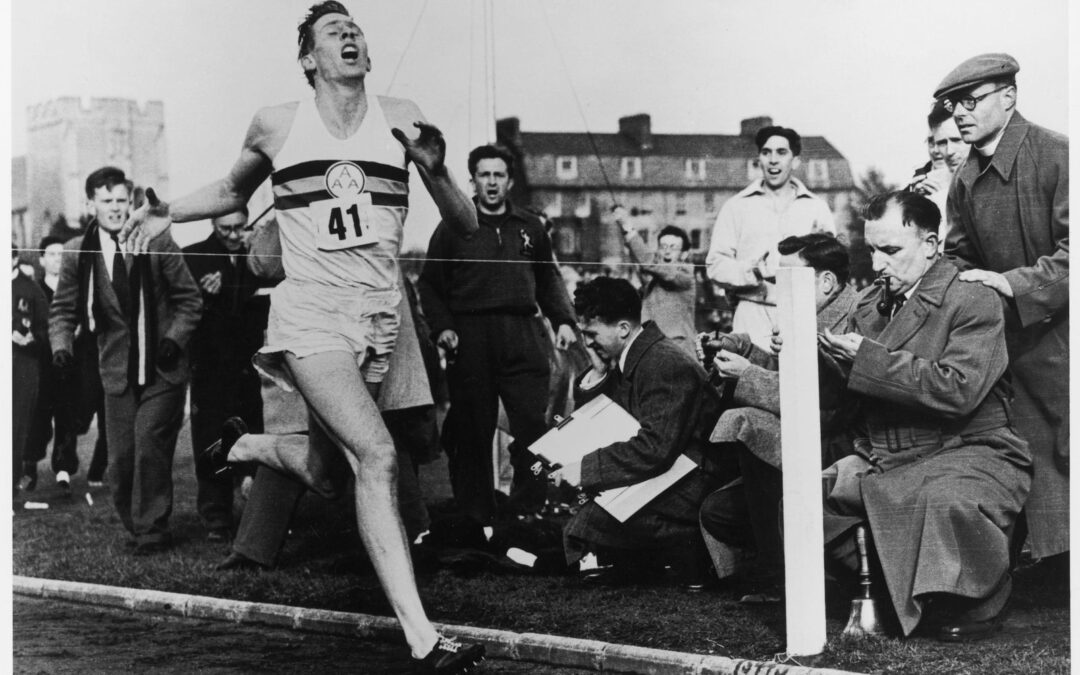
by Pete's Mental Gym | Aug 25, 2021 | Blog
Calling all football managers. For me it’s a process of elimination and has been for over twenty years now. The smart ones realise what a wonderful opportunity I’m handing them and the cynics just fall away. That’s okay, I can’t work with everyone. I’m very aware that my claim, that my methods instantly and dramatically improve the performance level of players and teams far beyond anything you imagined possible, can be difficult for cynics to take on board and will likely only appeal to a limited number of modern managers who are open-minded enough to accept that this is the way forward in the modern game and explore any method that will give them that crucial advantage over competitors. That winning edge. Because that’s what my method is – the winning edge. The holy grail that all managers seek. That’s if you believe me of course. But why shouldn’t you? Why on earth would I make it up if it weren’t true? I’d be found out soon enough wouldn’t I? So just to let you know, I’ve been doing this for over twenty years and I’ve worked with some of the most iconic athletes on the planet including a number of world champions. So now it’s over to you. You decide, true or false? But you’d better be quick though because my time is limited.

by Pete's Mental Gym | May 3, 2021 | Blog
[vc_row][vc_column][vc_column_text]‘When two teams are equally strong in technique, tactics and feel for the game, the team with the greater confidence is going to win.’
– (Sven-Goran Eriksson on football, 2002)[/vc_column_text][vc_column_text]Ostensibly, top athletes seem to have everything they need in order to compete – two arms, two legs, fitness, ability, a brain each – so what is the difference between winning and losing. What is it that allows any athlete to produce world-class performances at certain times and to struggle at others? The answer is connected with that last item, the brain and what’s in it. What many top athletes lack is the winning attitude and they’re reluctant to listen to those who know it’s something you can manufacture and build up.
If you ask any serious athlete to what extent their mental state affects performances they all tell you a huge amount. 70%, 80% or even 90%. Nobody says less than 50%. Indeed, it’s widely accepted throughout world sport that the correct mental approach is crucial to performances. I think we all know this don’t we?
But if you then ask those same athletes what they do to prepare their minds for competition, most of them say nothing at all. Why? ‘Because nobody told me.’
Although motivated, ambitious athletes torture themselves with long hours of hard physical slog in the gym, pool, court or field in order to crank up their bodies to peak performance level they do little, if anything at all, to condition their minds for success.
This is a paradox because if athletes believe their mental attitude is responsible for at least half their performance then logic suggests they should be spending at least as much time working on their minds as their bodies. Indeed, there is no doubt they should. The world of sport is very sadly littered with the bodies of burnt-out, talented athletes who couldn’t find the mental strength to fulfil their amazing potential.
Mental training is the great broken link that must be fixed toute suite if you’re really interested in achieving great things and also, of course, if you wish to stay in contention with your more progressive rivals who know this already. It gives you the opportunity to be truly in the zone and to experience that beautiful state at will. When you’re in the zone you switch over to auto-pilot and your mind and body click into harmony. Everything feels right and everything is perfect. Everything flows easily and effortlessly and you feel a surge of purpose and strength. You feel amazing and at that fantastic moment your performance skyrockets and you go further than you have ever gone before. This is exactly what my method does for you. Not only does it improve the athlete’s performance level and help them achieve their full potential but it is absolutely certain that they cannot achieve their full potential without it.
Mental training should form an integral part of the regular, daily, training schedule of players and coaches who should understand that mental strength is built up on a regular basis in the same way as physical fitness. You don’t go to the gym once and declare yourself fit do you? In the same way, you don’t have a mental training session and say ‘That’s it! I’ve sorted my mind out.’
Also, just as athletes perform a physical warm-up routine prior to competition, they need a mental warm-up to drive out all negative thoughts and leave them feeling strong, confident and powerful with only positive thoughts flowing through their minds when they step out to perform.
Any athlete or team will instantly perform on a higher level when using the methods I have developed over the last twenty years or so. This is a fact. So why wouldn’t you do it? After all, the exercises are simple and pretty straightforward. They’re perfectly safe and highly effective. We know many athletes are affected by the scourge known as fear of failure. Maybe some are affected by a different scourge. The fear of success. If you really want success, you want to follow my mental training method. Promise. I’m not saying you’ll win every time but I am saying you’ll have a much better chance of winning every time.
Watch out for more from the UK’s top sports mental coach, Peter Gilmour, coming soon![/vc_column_text][/vc_column][/vc_row]

by Pete's Mental Gym | Nov 15, 2019 | Blog
What happened to England in the world cup rugby final? I have a theory about this and I share it with you now.
As England fans hauled themselves out of bed to view the early morning cup-final kick-off beamed around the UK from Yokohama most believed their team just needed to turn up on the pitch to easily carry off the most coveted trophy in world rugby. As the fervent faithful gathered at rugby clubs and pubs for their early morning pints, full English breakfasts and sporting bonhomie the atmosphere was slightly tense but entirely optimistic. We were going to win. Of course we were. Any other outcome was impossible to imagine after our complete semi-final demolition of the mighty all blacks, the current champions and universally considered best team in the world. If we could beat them so comprehensively then our opponents in the final, South Africa didn’t stand a chance. After all, they lost to New Zealand in the group stages earlier in the tournament. But if sport teaches us anything at all it is the total fallacy of the equation that if A beats B and B beats C then A must beat C. No mate. It doesn’t work like that at all. There would be no point in bothering to play some of the games if it was true. By half time the bacon butties were causing acute indigestion and the milk was curdling in the tea. England were losing and no team that had been losing at half time in the world cup final had ever come back to win. And neither did England. But why? They played so well in the semi-final and yet were beaten easily in the final. I hate to sound like a bighead but I wasn’t entirely surprised. I felt it coming for two main reasons. First, most players and fans were talking as if our win was a foregone conclusion. Never a good thing in top sport.
After the semi-final everyone was confident and buoyant, that’s okay, but they totally underestimated the quality, toughness and determination of the springboks who had crept their way unexpectedly into the final. However, the bottle green boys also had an extra motivation. The chance to heal a divided nation. Their black captain, Siya Kolosi, who had clawed his way from township slums to become leader of this elite sports team in a country that places such huge value on the importance of sport, particularly rugby, was an inspirational boost. He wanted to inspire every kid in South Africa. This provided a motivational element felt by all his players which is something that can’t really be coached. It is an intrinsic belief. But there was another, more crucial element that can most certainly be coached and which was possibly an oversight by the England coaching team. The team had peaked in the semi-final and didn’t have enough left in the tank to compete in the final. They were drained. What England did to New Zealand in the semi, South Africa did to England in the final. Started quickly, took the initiative, gained control, scored early and retained the momentum. England struggled to get on terms, particularly in the scrum, because they had played their final a week too early. When coaching teams or individual athletes you don’t want them to peak in the first round or any other round. You want them to peak in the final. If they don’t make it to the final then you shake hands with your opponents, examine everything that happened and make the changes needed to bring about a better outcome next time. But if you peak too early you’re unlikely to win. The team that wins is usually the team that peaks in the final. In this case South Africa without a doubt. But if you consider the unifying and positive effect this victory will have on the rainbow nation, a country scarred badly by historical racial hatred, we shouldn’t be too disappointed.
‘Sport has the power to change the world. It has the power to inspire. It has the power to unite people in a way that little else does. It speaks to youth in a language they understand. Sport can create hope where once there was only despair. It is more powerful than government in breaking down racial barriers.’
– Nelson Mandela

by Pete's Mental Gym | Aug 17, 2019 | Blog
Many people have an underlying feeling that something is missing in their lives. When questioned closely it emerges that what they want most is happiness but they allow stress, anxiety and the pressing ‘responsibilities’ of modern life to avoid getting it. On a level of one to ten how happy are you? Maybe you feel that happiness is some abstract concept that may exist sometime in the future. But the mantra is clear. There’s no need to wait, you can be happy now because by using Peter Gilmour’s simple yet potent methods for just a few minutes every day you will feel better, function better, be happier and improve every aspect of your life.
Peter is passionate in his desire to pass on these rapid techniques to his audiences in order to create a happier, healthier world. He offers the chance for anyone to learn these amazing secrets at his popular seminars held around the UK and abroad throughout the year. At his How to be Happy event, Peter Gilmour shows you how to be happy now. These are not lectures but humorous, vibrant, interactive events including interesting anecdotes, videos & demonstrations. At the event you will learn ten simple, potent techniques you can take away and use every day to feel better, function better and feel happier so that your life improves in every way.
If you want to revitalise and re-energise your life keep an eye on these pages for events near you or arrange for Peter to visit your club, business or any other gathering of interested people anywhere in the UK or abroad.
You can call Peter for more information on 07831 699624 or email him at [email protected].

by Pete's Mental Gym | Sep 21, 2017 | Blog
On 6th May 1954 Roger Bannister stepped out onto a running track in Oxford in an attempt to break the record for running the mile. The previous record had stood at 4.01.4 for nine years during which many great athletes had tried and failed to break this daunting record to the point where it was generally considered beyond the capacity of any human being to achieve Because of that it had become known as the four-minute mile barrier. Indeed, scientific opinion of the time warned that if you were foolhardy enough to attempt such a feat your heart might explode in the process. But banister and other athletes, in particular his great rival the Australian John Landy, were convinced it was possible and each was determined to be the first.
On that day Bannister made history and re-defined what was possible. He fell exhausted through the finishing tape in a record time of 3.59.4 and his great, almost superhuman effort was hailed as one of the finest moments ever in the history of athletics.
Curiously however, in the following twelve months, a number of other athletes managed to run the mile in under four minutes and John Landy broke the record by a full second only one month after Bannister What does this tell us?
It’s all about belief. Bannister had such great belief in his ability to succeed in his goal of breaking the four-minute barrier that he was able to overwhelm scientific opinion of the time and make the impossible possible. But it was only when he had achieved it that others knew and believed it was possible and that they could do it too.
The moral of the story, like so many of the most wonderful things in life, is very simple. If you believe you can win you have a chance of winning. If you don’t believe you can win you probably won’t. So Peter Gilmour’s advice to ambitious athletes is to practice believing and his method has many techniques, sessions, tricks and triggers to help you do exactly that and work towards the Bannister model of unconquerable belief.
By the way, the record for the mile currently stands at 3.43.13 more than a quarter of a minute faster than Bannister and that was achieved by Hicham el Guerrouj in Rome in 1999.





